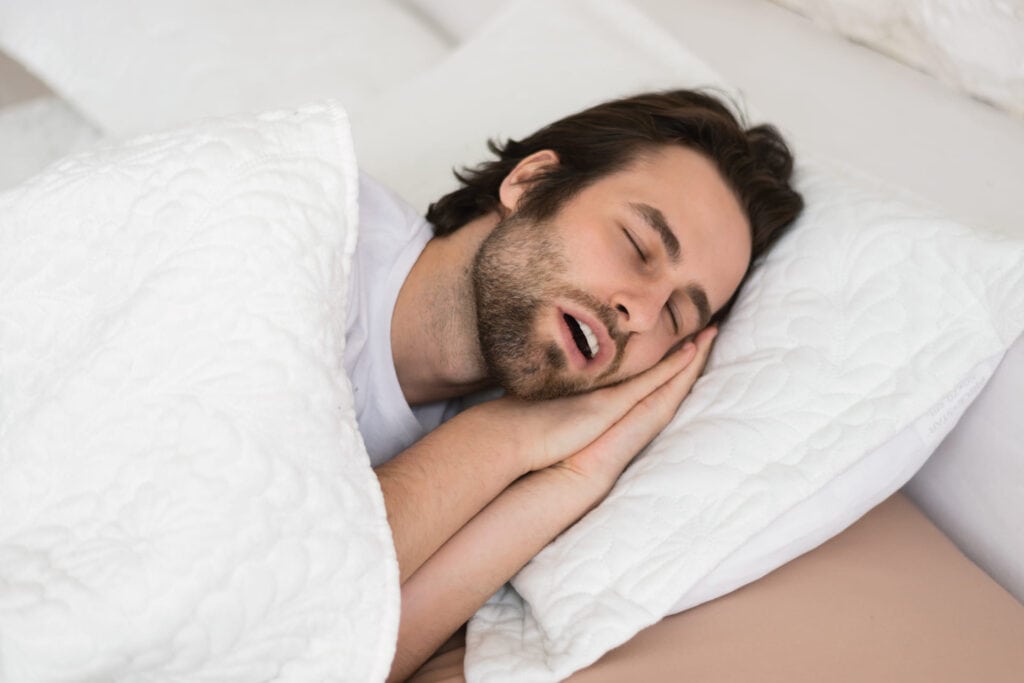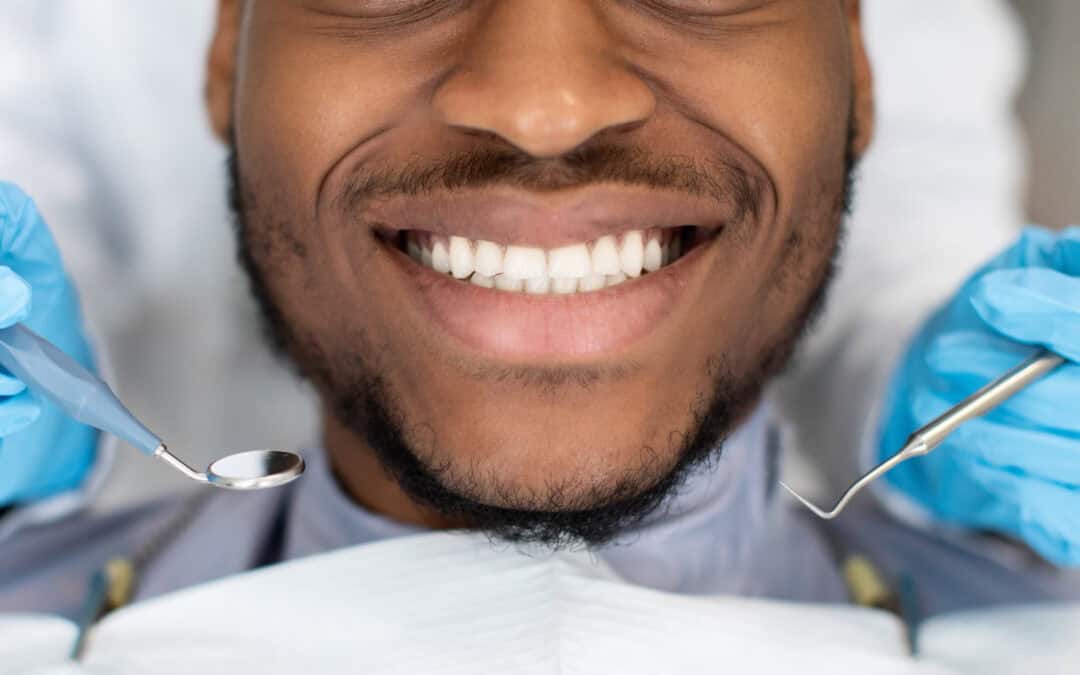Many people grind their teeth at night without even realizing it. Waking up with a sore jaw, headaches, or sensitive teeth could be signs of nighttime grinding, also known as bruxism. A dentist in Slidell can detect the early symptoms and recommend effective solutions. Learning how to prevent teeth grinding protects long-term dental health and reduces discomfort.
Why a Dentist Diagnoses Teeth Grinding Early
A dentist in Slidell carefully examines the teeth and jaw for signs of bruxism before serious damage occurs. A patient may experience mild symptoms at first, but consistent grinding can lead to fractures, enamel loss, and even gum recession. Identifying the issue early allows for easier management and prevention of long-term dental problems.
- Enamel loss from grinding makes teeth more vulnerable to cavities.
- Frequent clenching can cause muscle pain and tension headaches.
- Severe grinding may lead to cracked or broken teeth requiring restorative treatment.
What a Dentist in Slidell Recommends for Jaw Pain Relief
Persistent jaw soreness is a common symptom of bruxism. A dentist in Slidell may suggest simple strategies to relax the jaw and minimize strain. Targeted treatments can help alleviate discomfort while addressing the root cause of grinding.
- Warm compresses relax tense jaw muscles before bedtime.
- Jaw exercises improve mobility and reduce stiffness.
- Massage therapy alleviates tension in the jaw, neck, and shoulders
How a Dentist Identifies Nighttime Bruxism
Grinding often occurs during sleep, making it difficult for individuals to notice. A dentist in Slidell looks for telltale signs, including flattened tooth surfaces, jaw pain, and unusual tooth wear patterns. Patients who suspect bruxism can keep track of symptoms and discuss concerns with their dentist.
- Jaw clicking or stiffness in the morning can indicate excessive grinding.
- Sensitive teeth without visible decay may result from constant pressure.
- Partners may report hearing grinding noises at night.

Why a Dentist in Slidell Prescribes Custom Mouthguards
A well-fitted mouthguard is one of the most effective ways to prevent grinding-related damage. A dentist in Slidell designs custom mouthguards to provide maximum comfort and protection. Unlike store-bought options, these guards are tailored to fit precisely.
- Custom guards distribute pressure evenly, preventing further enamel wear.
- A properly fitted mouthguard stays in place throughout the night.
- Soft material reduces jaw clenching and absorbs grinding force.
How a Dentist Treats Severe Teeth Grinding
Chronic bruxism can lead to serious dental problems if left untreated. A dentist in Slidell may explore advanced treatment options for patients experiencing severe symptoms. Addressing the underlying cause helps prevent long-term complications.
- Orthodontic adjustments correct misaligned teeth contributing to grinding.
- Botox injections relax overactive jaw muscles responsible for clenching.
- Dental restorations repair worn enamel and restore proper bite function.
What a Dentist in Slidell Advises About Stress and Bruxism
Stress is one of the most common triggers of nighttime grinding. A dentist in Slidell discusses stress management techniques that can reduce clenching and grinding episodes. Relaxation strategies improve both mental well-being and dental health.
- Meditation and deep breathing exercises lower stress levels.
- Regular exercise helps release tension stored in the jaw muscles.
- Establishing a bedtime routine signals the body to relax before sleep.
Why a Dentist Suggests Dietary Changes for Bruxism
Certain foods and beverages can increase the likelihood of grinding. A dentist in Slidell may recommend adjusting dietary habits to reduce triggers. Small changes can lead to noticeable improvements in bruxism symptoms.
- Limiting caffeine intake reduces nighttime muscle activity.
- Avoiding alcohol before bed prevents increased jaw tension.
- Soft foods minimize jaw strain during flare-ups.

How a Dentist in Slidell Helps Protect Enamel from Grinding Damage
Repeated grinding wears down enamel, making teeth more susceptible to sensitivity and decay. A dentist in Slidell recommends protective measures to maintain enamel strength and prevent further damage. Strengthening the teeth reduces long-term complications.
- Nanohydroxyapatite toothpaste helps rebuild and strengthen enamel.
- Fluoride treatments create an additional layer of protection against wear.
- Regular dental checkups detect early signs of enamel erosion.
Key Takeaways on Stopping Teeth Grinding and Protecting Oral Health
Bruxism can lead to serious dental concerns if left untreated. A dentist in Slidell provides customized solutions based on each patient’s needs. Taking proactive steps to manage grinding reduces pain and prevents long-term damage.
- Early detection prevents enamel loss and tooth fractures.
- Custom mouthguards provide an effective barrier against grinding.
- Stress management and dietary adjustments help reduce symptoms.
Frequently Asked Questions
Can a dentist diagnose bruxism without a sleep study?
A dentist can often identify bruxism through a physical exam, looking for wear patterns on teeth, jaw tenderness, and patient-reported symptoms. In some cases, a sleep study may confirm the diagnosis.
How long does it take for a custom mouthguard to work?
Most patients notice reduced grinding symptoms within a few weeks. Wearing a mouthguard consistently helps protect teeth and prevents worsening damage.
Is stress always the cause of teeth grinding?
Stress is a common trigger, but other factors such as misaligned teeth, medication side effects, and sleep disorders can contribute to bruxism. A dentist evaluates all possible causes before recommending treatment.
Can teeth grinding go away on its own?
Mild cases may improve with stress reduction and lifestyle changes. Severe bruxism often requires professional intervention to prevent lasting dental issues.
Are there natural remedies for reducing teeth grinding?
Practicing jaw relaxation exercises, reducing caffeine intake, and using warm compresses before bed can help minimize grinding frequency. A dentist can provide additional recommendations tailored to each patient’s needs.
Louisiana News Post provides expert advice on home and garden services like gardening, landscaping, hardscaping, renovating, remodeling, roofing, HVAC, and interior design to help readers create their dream spaces. Their practical tips and creative solutions are inspired by years of hands-on experience and a commitment to affordable living. Whether you’re a seasoned handyman or just starting to explore home improvement, Louisiana News Post’s articles are a reliable resource for innovative ideas and detailed guidance.








